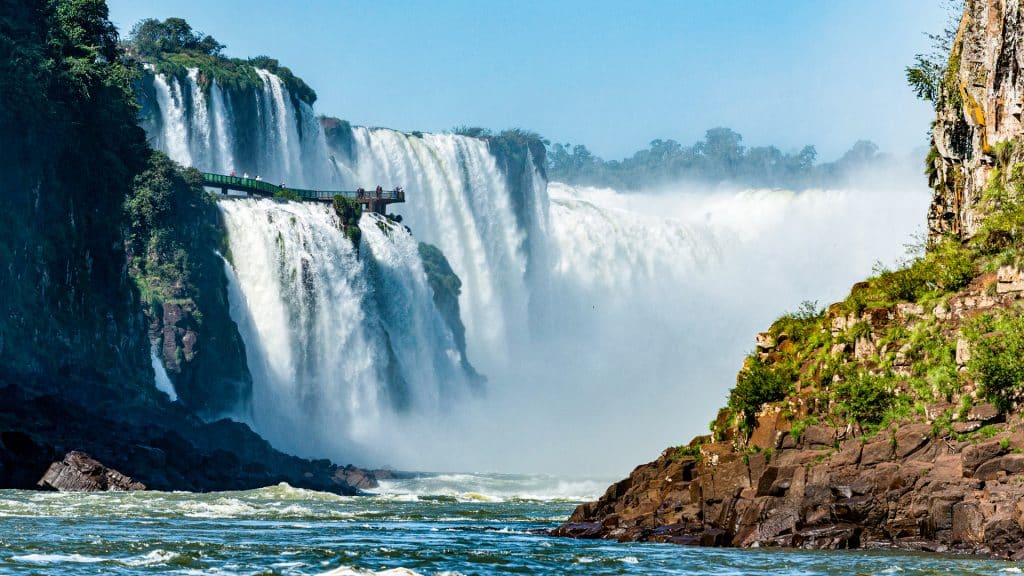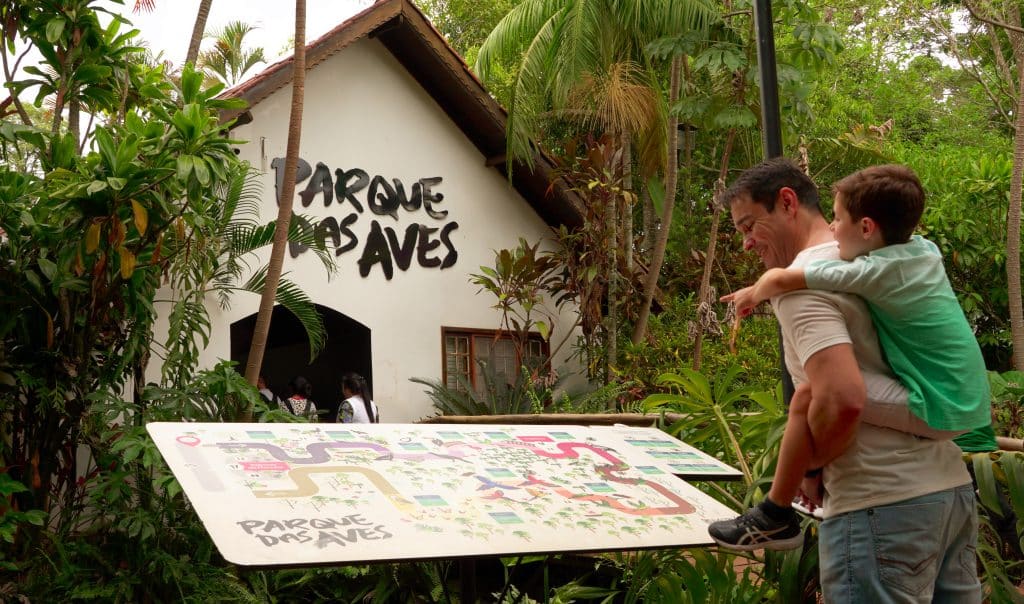
Iguassu Falls, located in Paraná State, is one of Brazil’s most important tourist destinations, renowned for the Iguassu Falls and the Itaipu Hydroelectric Dam. With a population of approximately 257,000 inhabitants, the city attracts tourists from around the world and is the third most visited destination by foreigners in the country. Sustainability has been a fundamental pillar for local development, especially in tourism, which aims to generate economic, social, and environmental benefits responsibly. Iguassu Falls has become a global example of sustainable tourism, balancing environmental preservation with local economic strengthening and respect for cultural diversity, ensuring sustainable growth for future generations. The destination stands out not only for its natural beauty but also for its environmental preservation and conservation efforts involving various local initiatives. Here are some highlights:
Iguassu National Park: Environmental Preservation Actions
Urbia Cataratas, responsible for managing public visitation at Iguassu National Park, develops various actions to preserve the local ecosystem, which is of significant ecological and scenic importance. The company adopts sustainability as a core principle, with initiatives focused on environmental education, wastewater treatment, and the conservation of fauna and flora. Noteworthy is the water reuse system that uses treated effluents for toilet flushing, contributing to reduced water consumption.
Another significant project is the Onças do Iguaçu (Jaguars from Iguassu) Project, which aims to preserve the jaguar, a key species for the region’s biodiversity. Visitors support the project by purchasing themed products such as T-shirts and decorative items available at the park’s shops. To enhance conservation efforts, Urbia Cataratas and ICMBio announced a 3.6 million BRL investment in the project, focusing on expanding the team and infrastructure.
Iguassu National Park is managed by ICMBio, and Urbia Cataratas strives to align environmental preservation with sustainable development and ecological tourism, benefiting both the environment and the local economy.
Bird Park: Conservation and Sustainability

Bird Park, located in Iguassu Falls, is the largest bird conservation park in Latin America and a significant center for the conservation of the Atlantic Forest’s biodiversity. Founded in 1994, the park welcomes over 800,000 visitors annually and is one of the region’s main tourist attractions. To promote environmental connection and save endangered species, Bird Park established the Claravis Institute in 2020, dedicated to accelerating conservation actions. Additionally, the park adopts sustainable practices such as providing free potable water to reduce plastic use, planting over 3,000 native trees, and replacing plastic products with biodegradable alternatives in its Gastronomic Complex, aiming to minimize environmental impacts and promote conservation education.
Itaipu: Environmental Actions for Regional Sustainability
Itaipu Binacional develops various environmental initiatives to promote sustainability in the region of its reservoir. The Sanitation Program in the Region aims to implement sanitation management strategies with models that can be adopted by municipalities in the plant’s area of influence. Additionally, the company promotes Sustainable Rural Development, focusing on family farming, aiming to reduce water and soil contamination and strengthen local agriculture. The Forest Replenishment Program is one of the largest in the world, with over 28 million seedlings planted since 1979, contributing to ecosystem protection and erosion reduction. The Protection Strip Management focuses on conserving protected areas, ensuring water quality and quantity, biodiversity, and preventing illegal activities such as poaching and deforestation through continuous monitoring and local partnerships.
To learn more about these actions and other projects, visit the destination’s website and social media: Instagram, YouTube, and Facebook.
Written by: Gisele Rodrigues – @mundopraviver

Schedule a chat with Anna Santos: Online | 30 to 45 minutes
Let’s talk about the destinations, its unique features, possible travel combinations, traveler profiles, sustainable projects, and much more!






